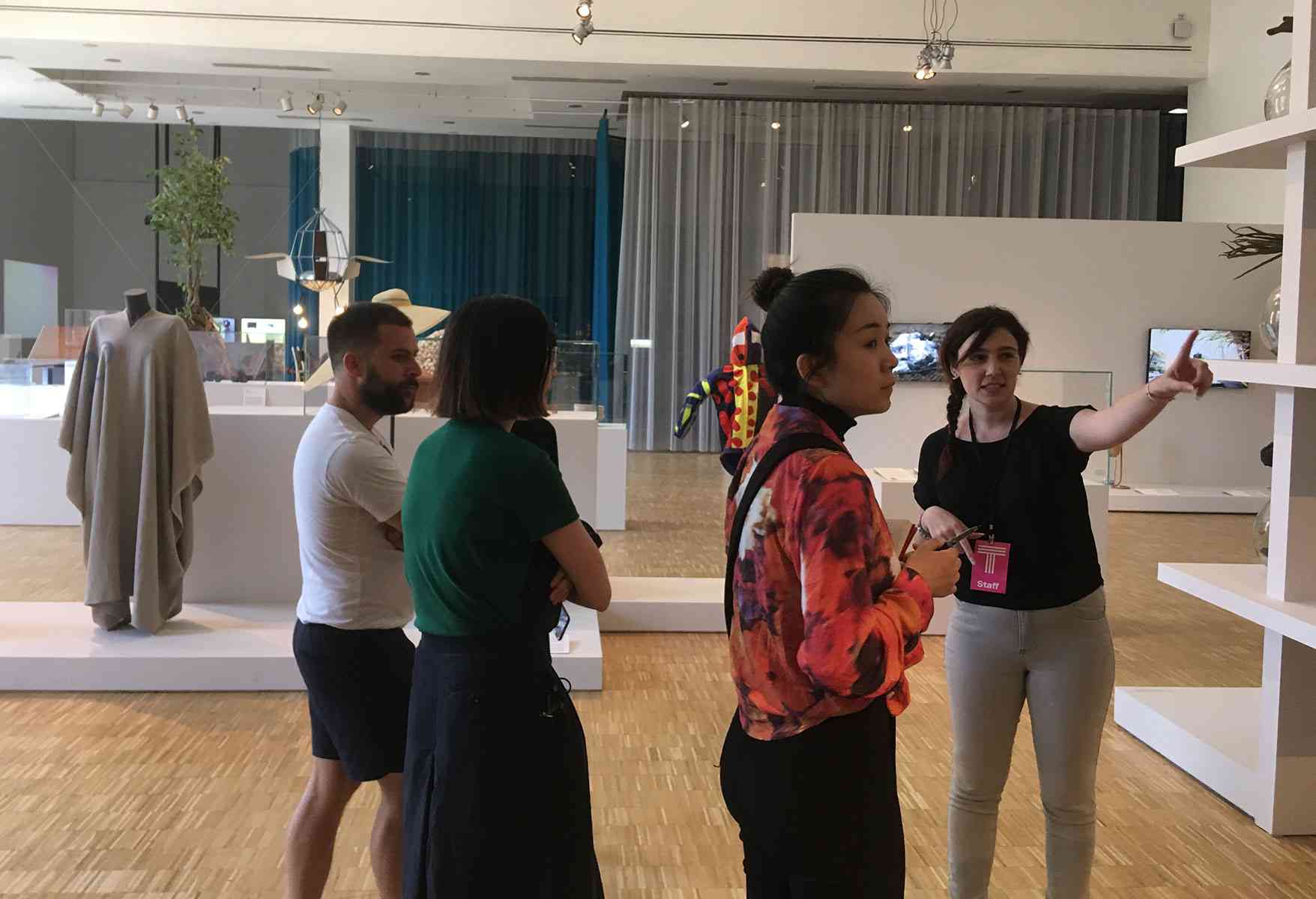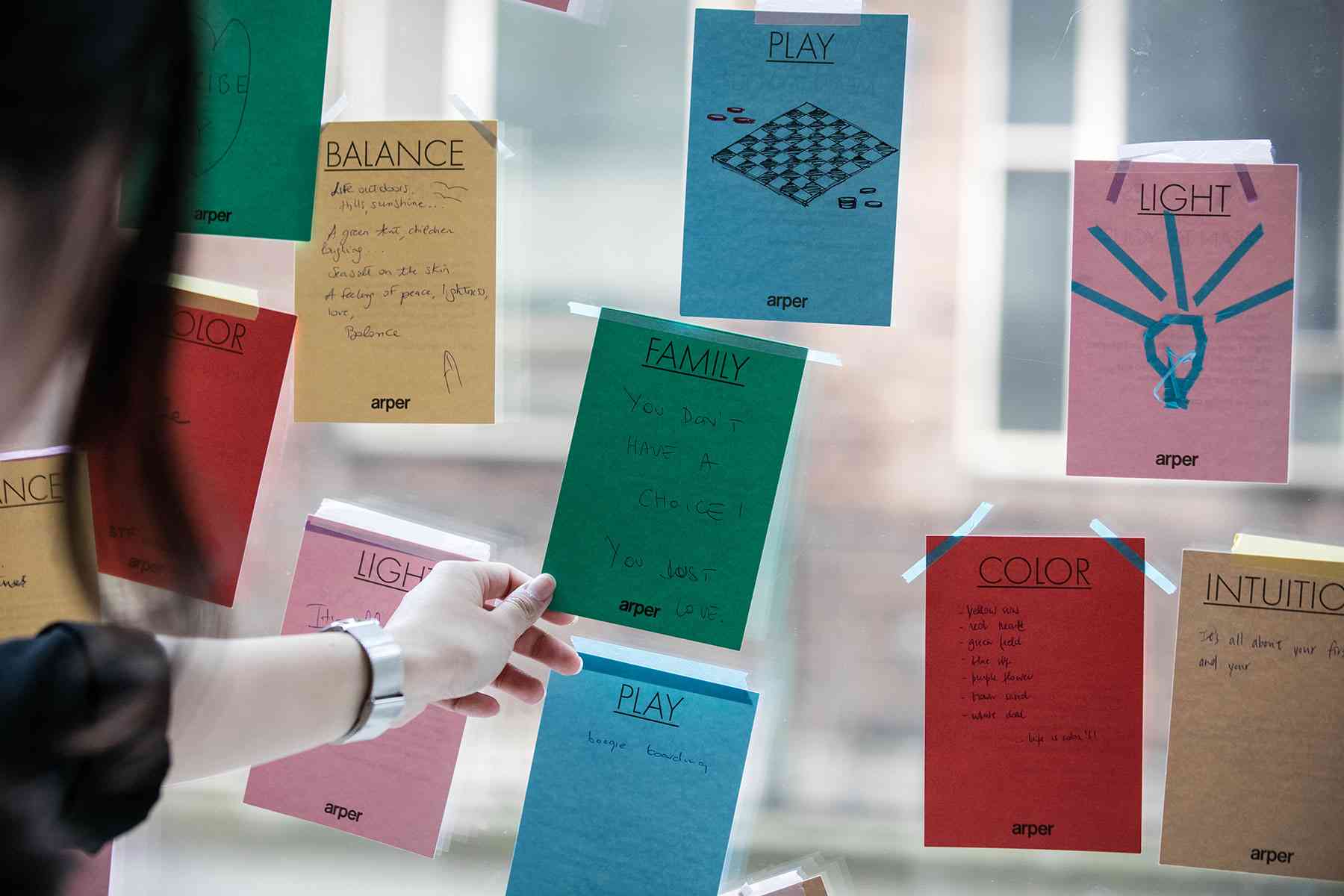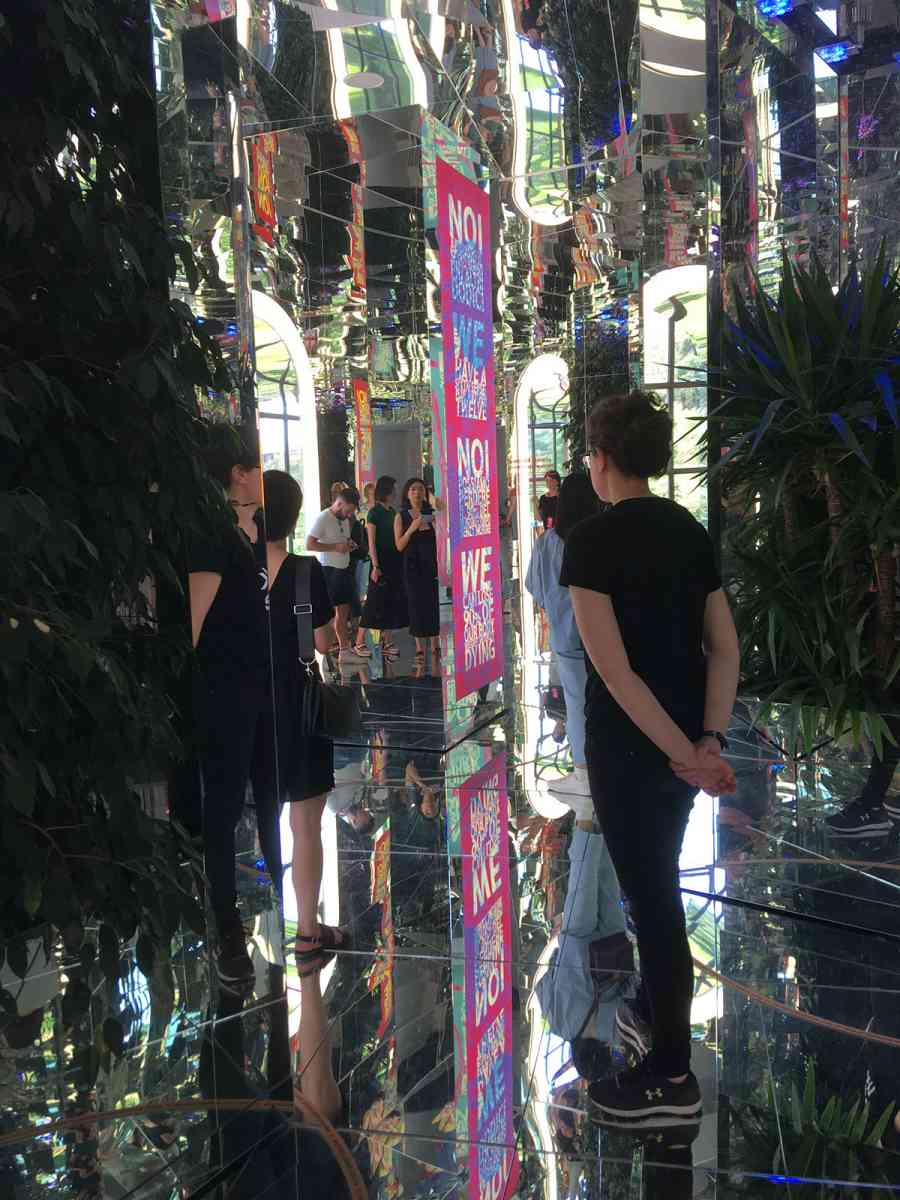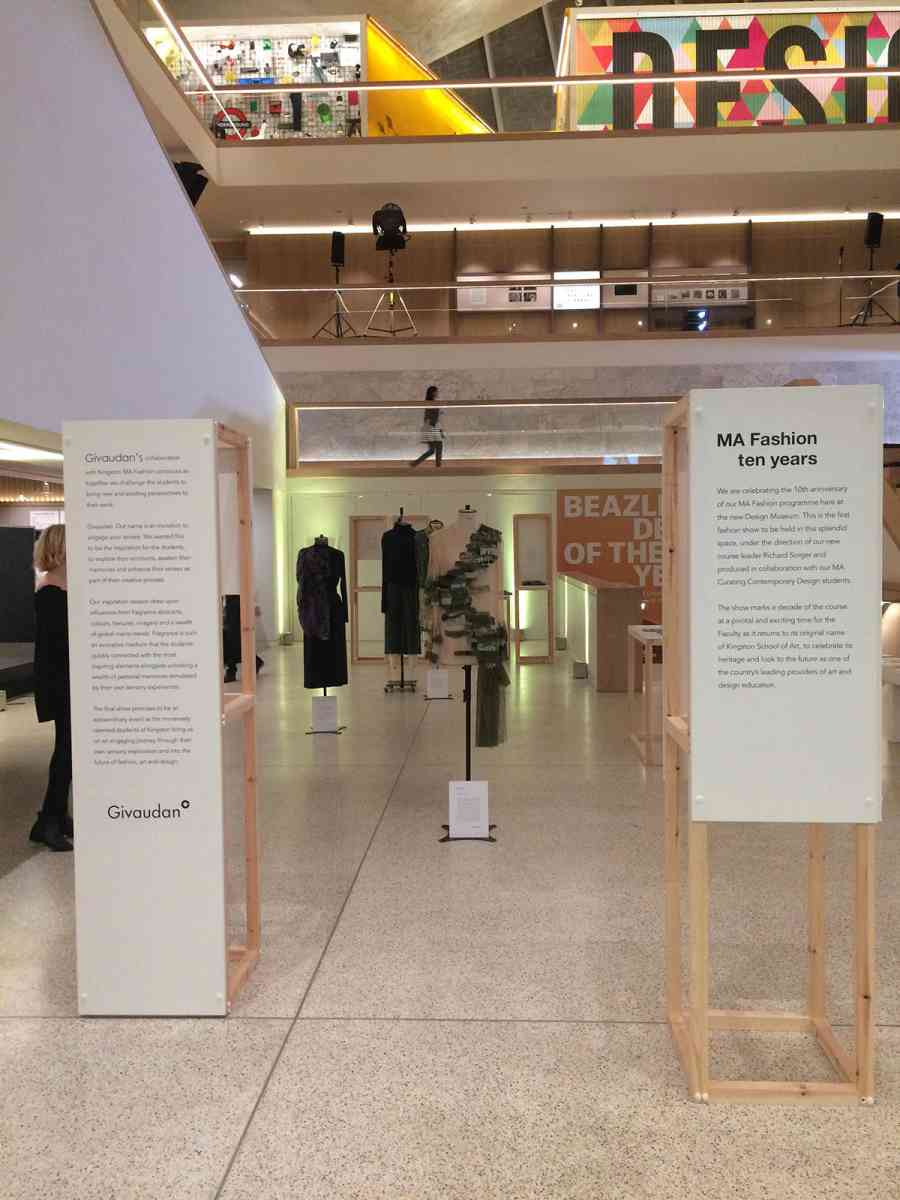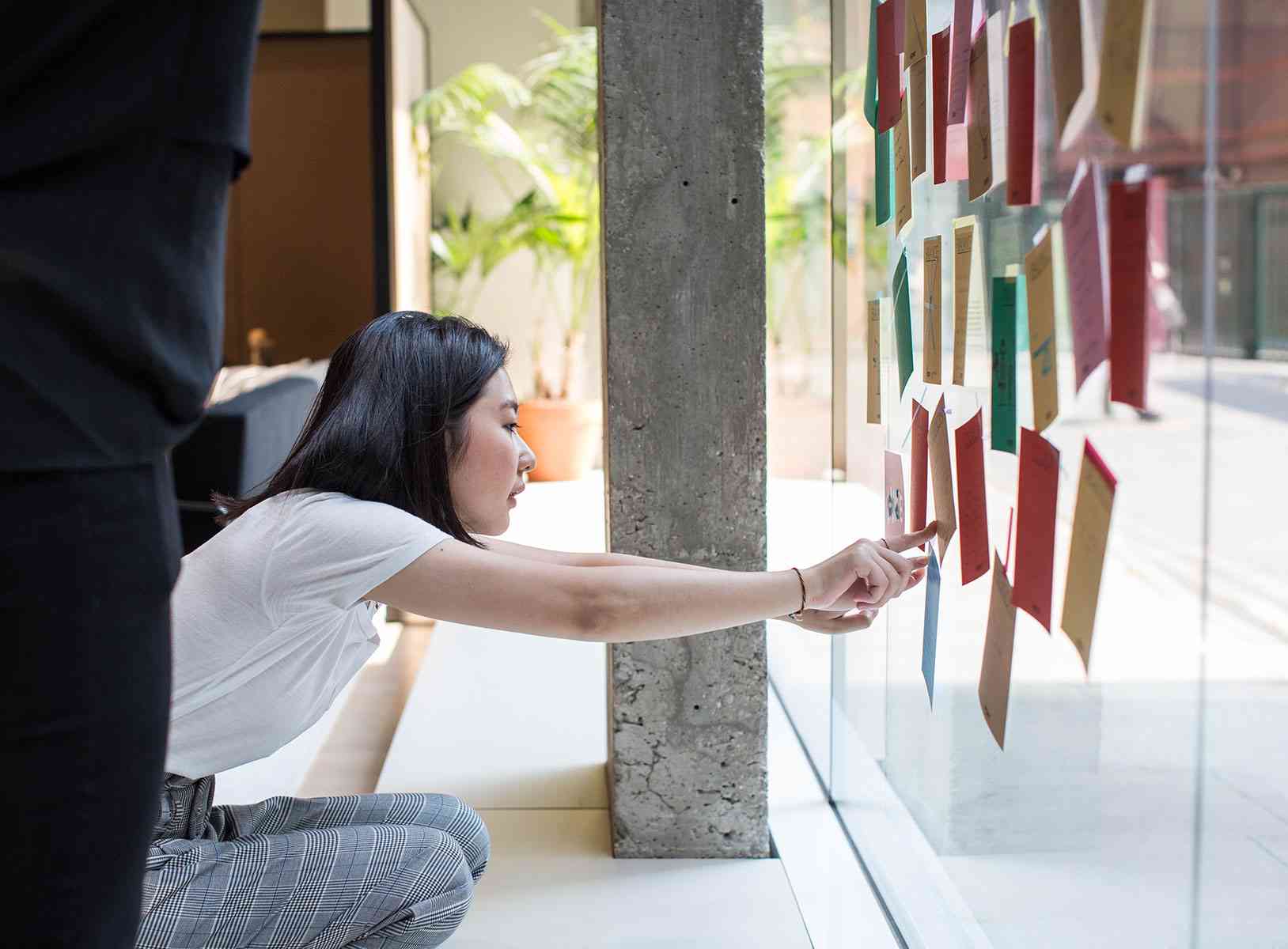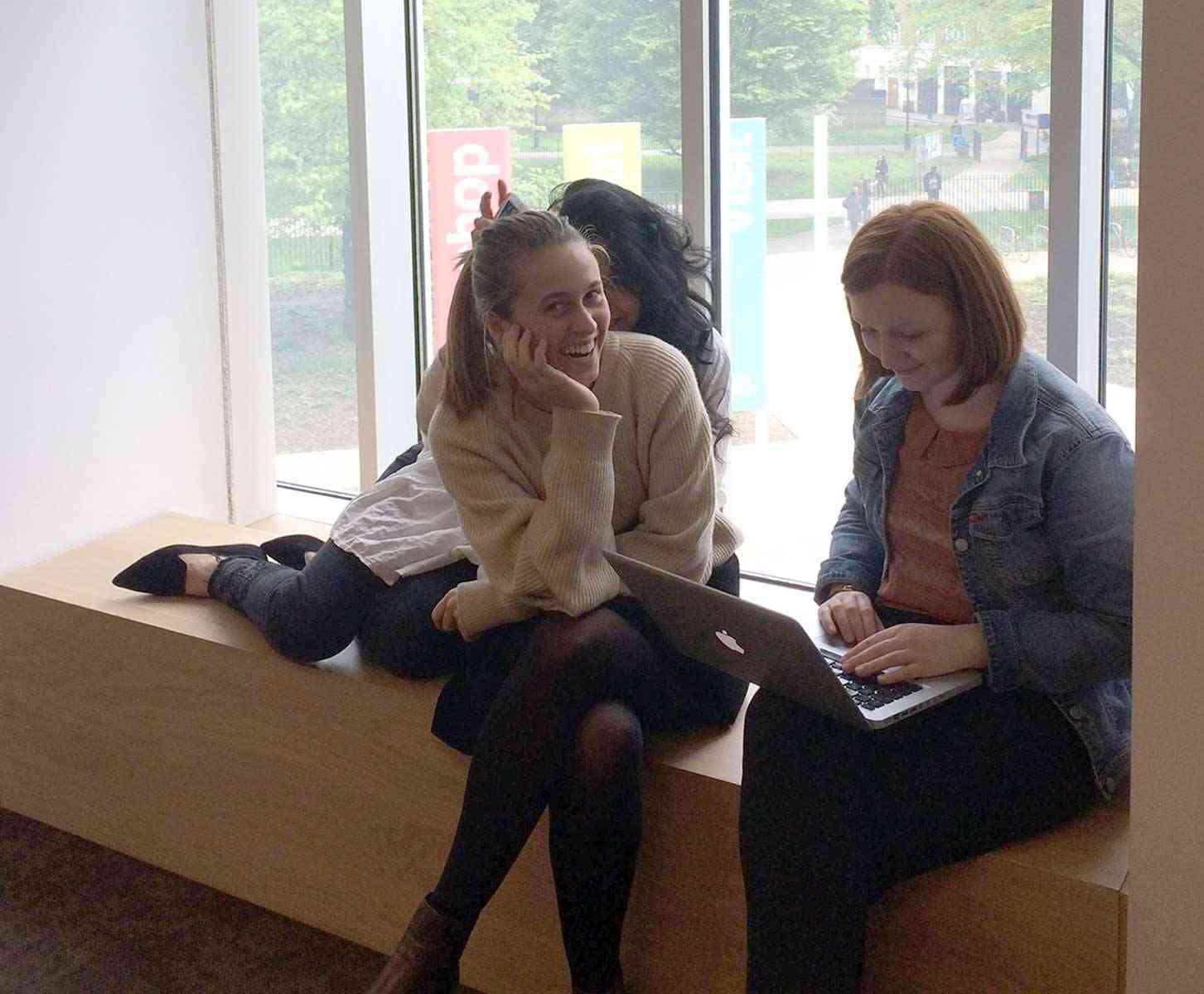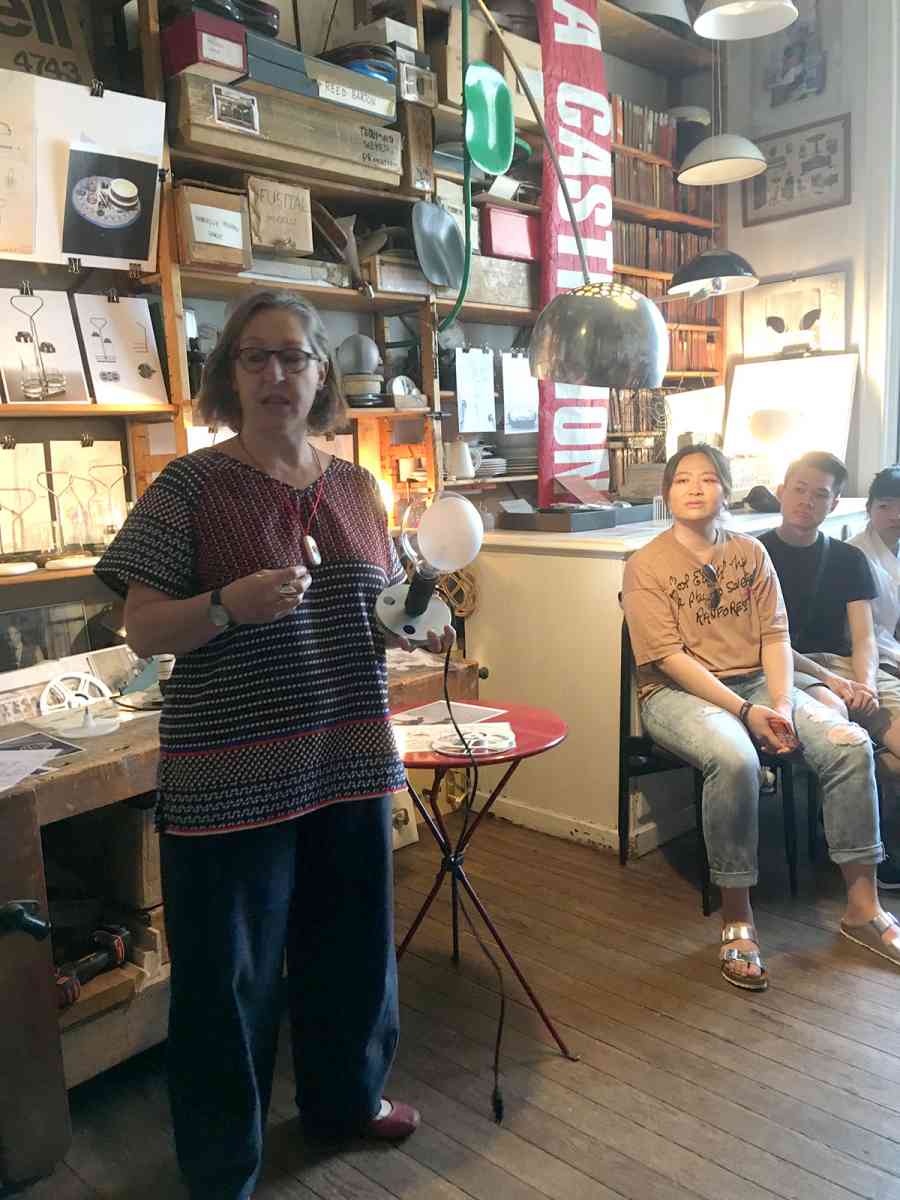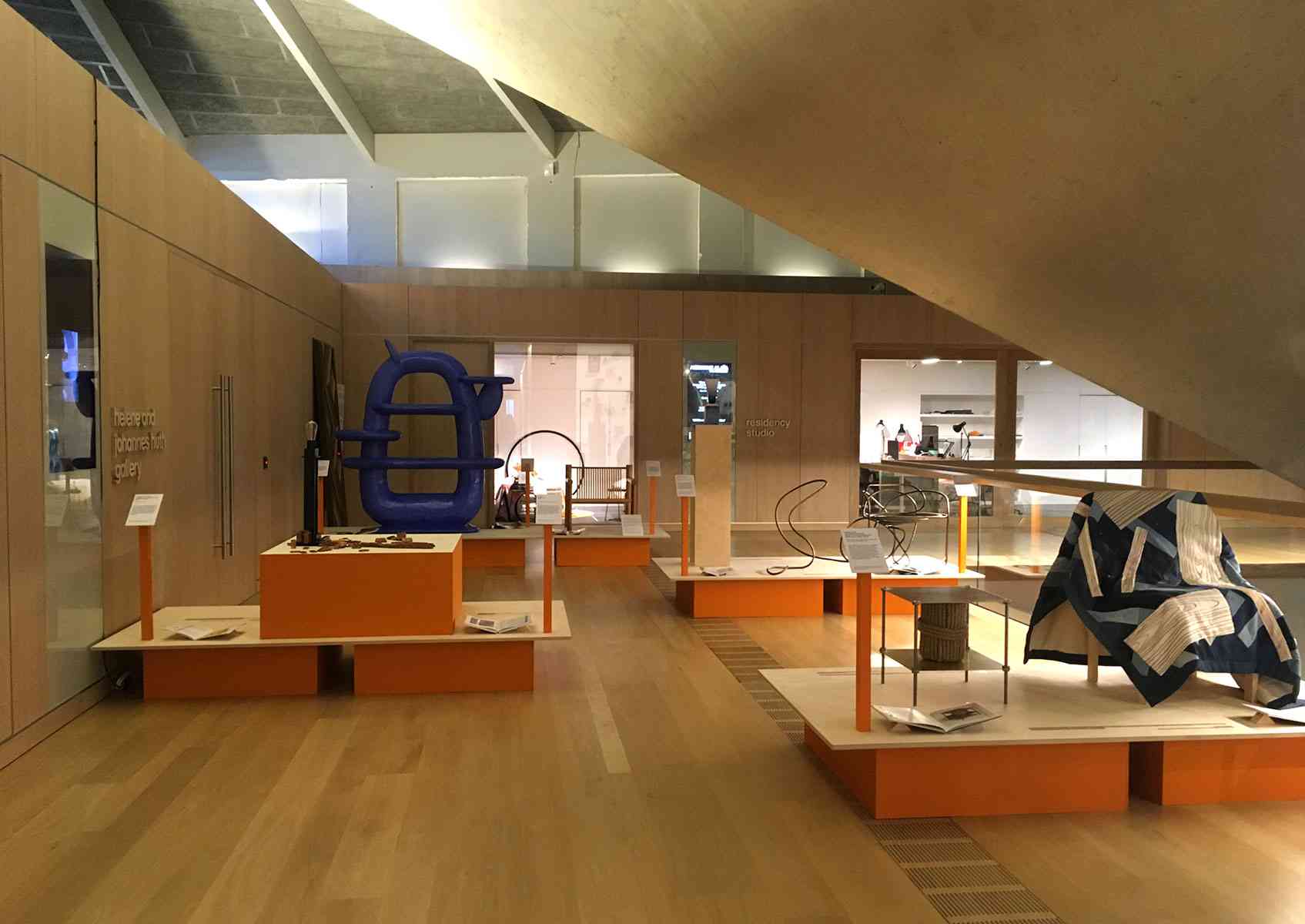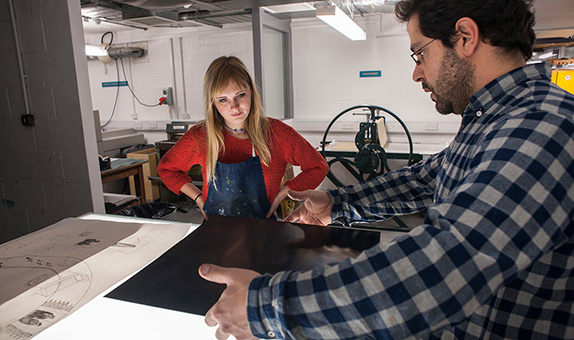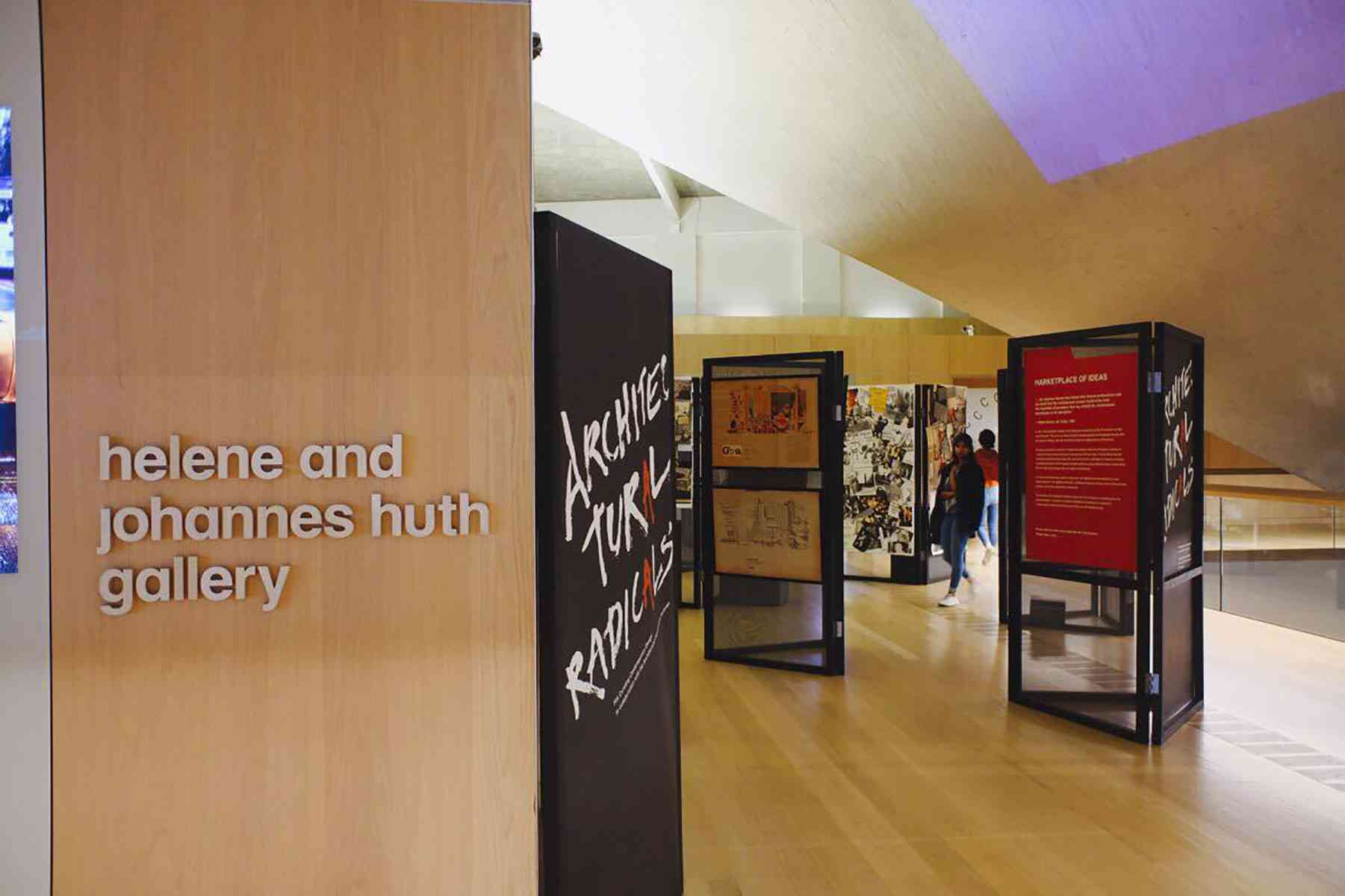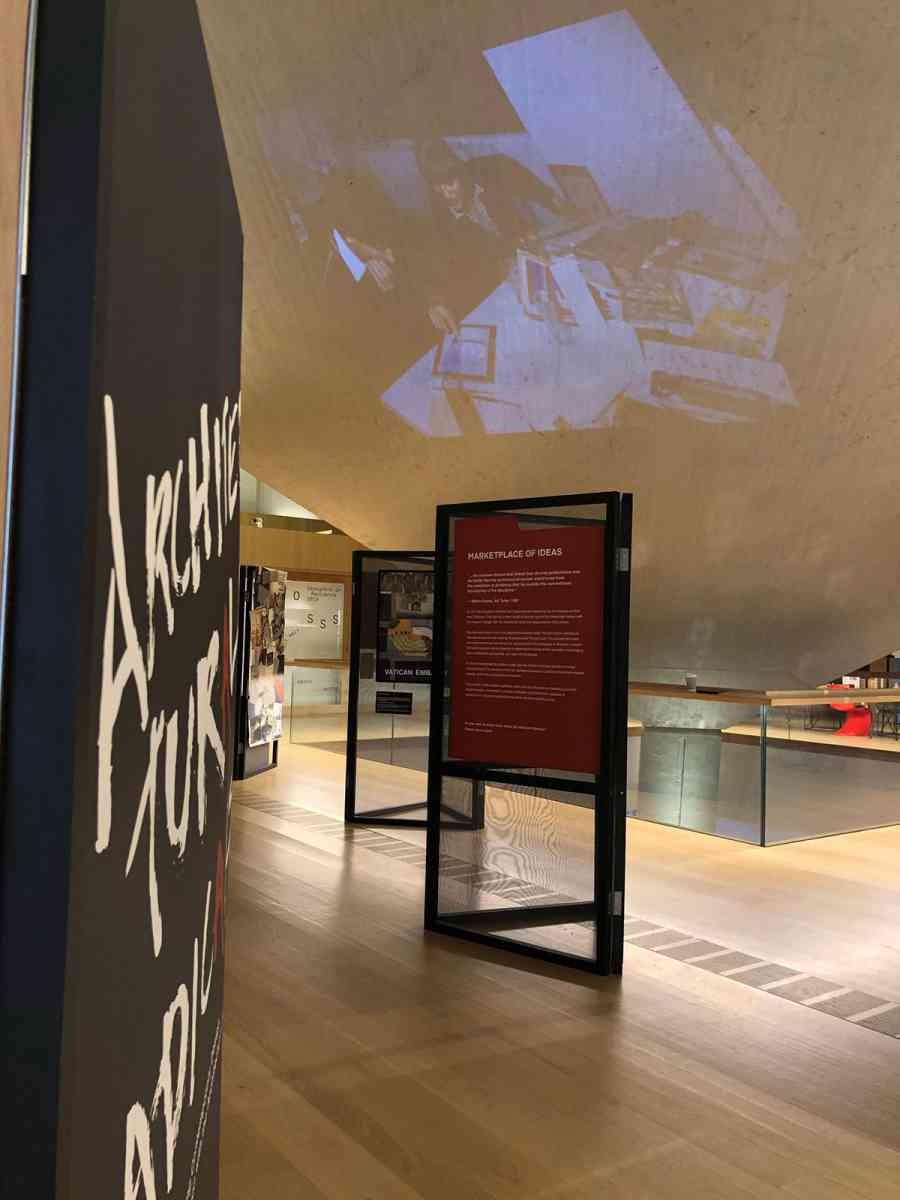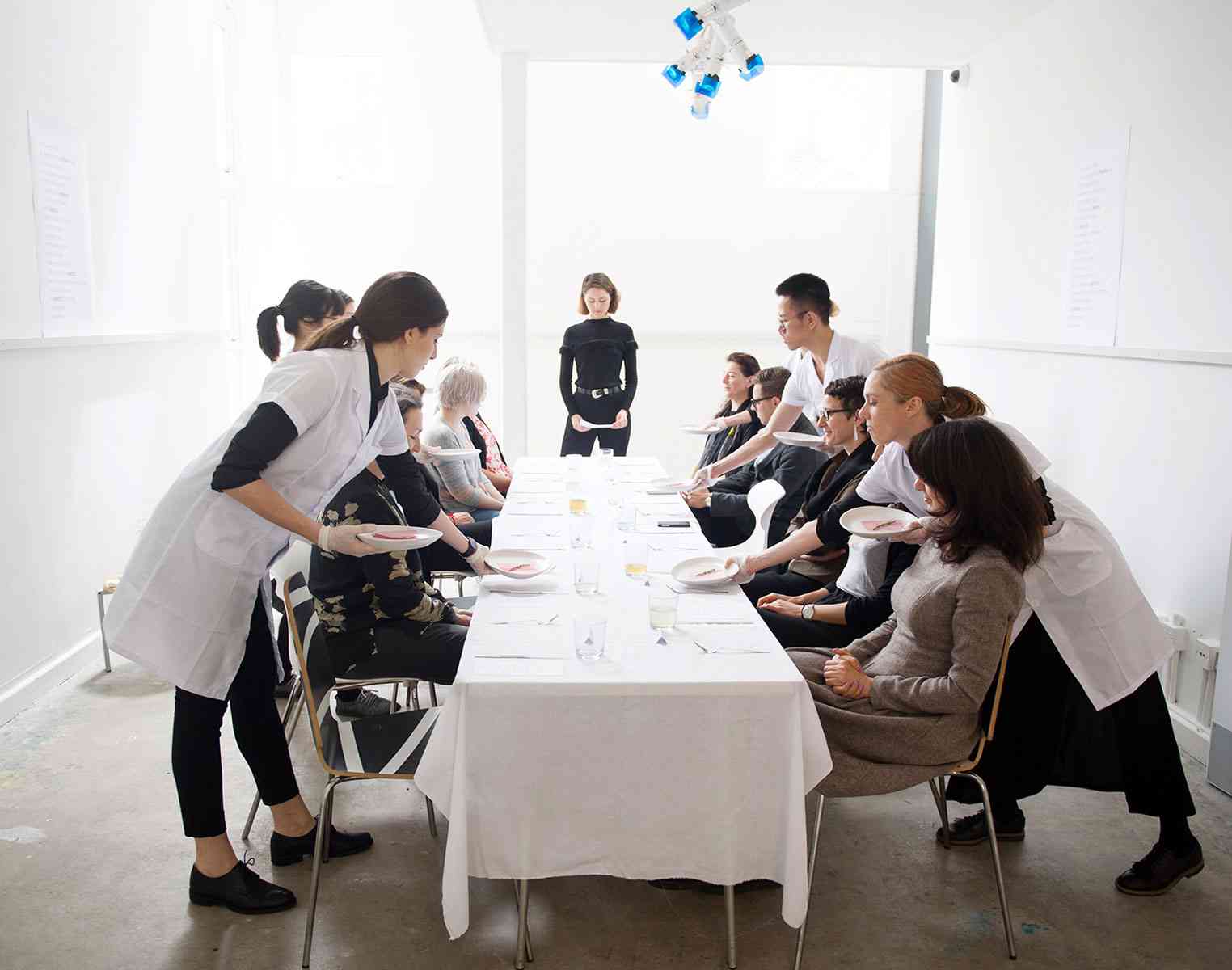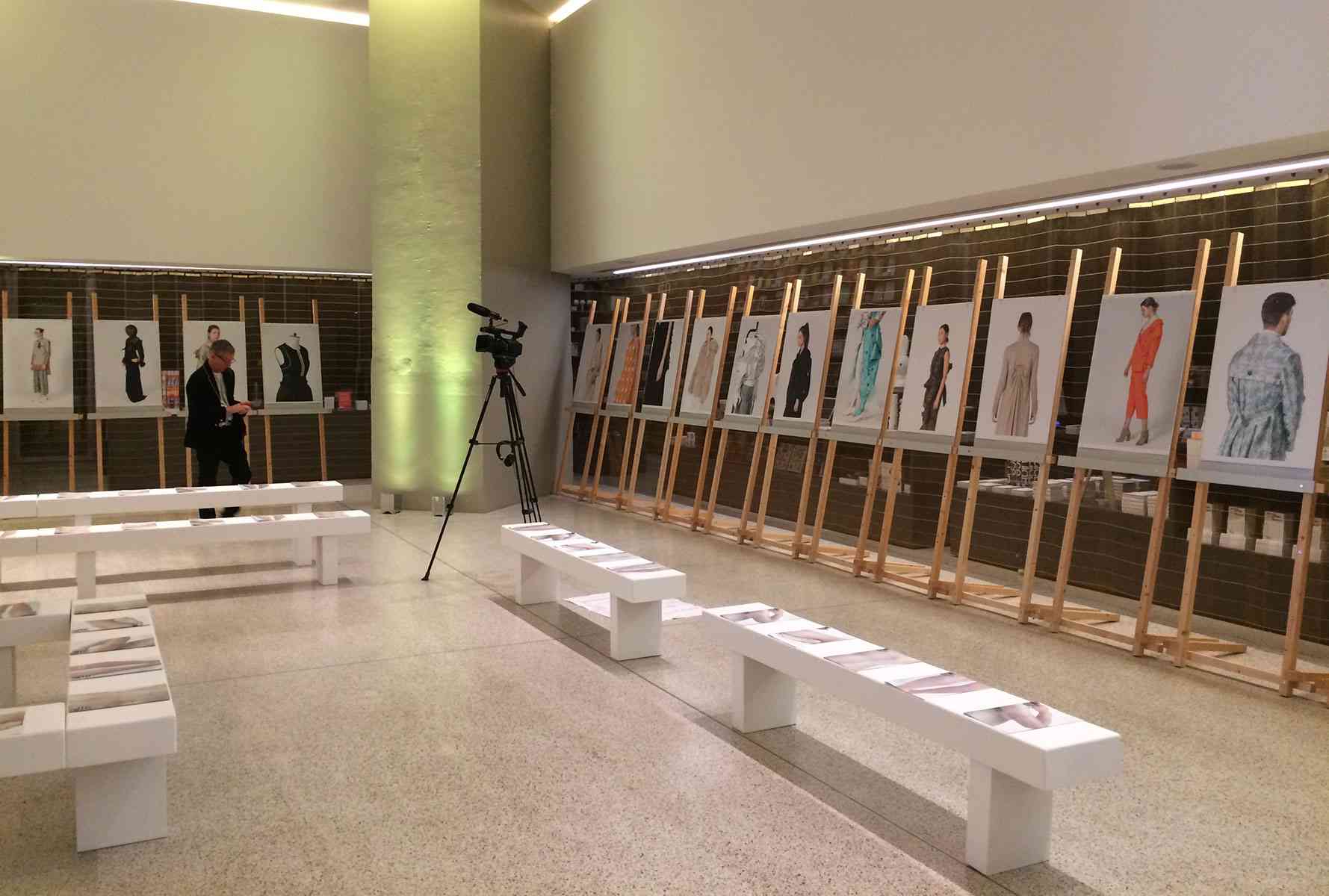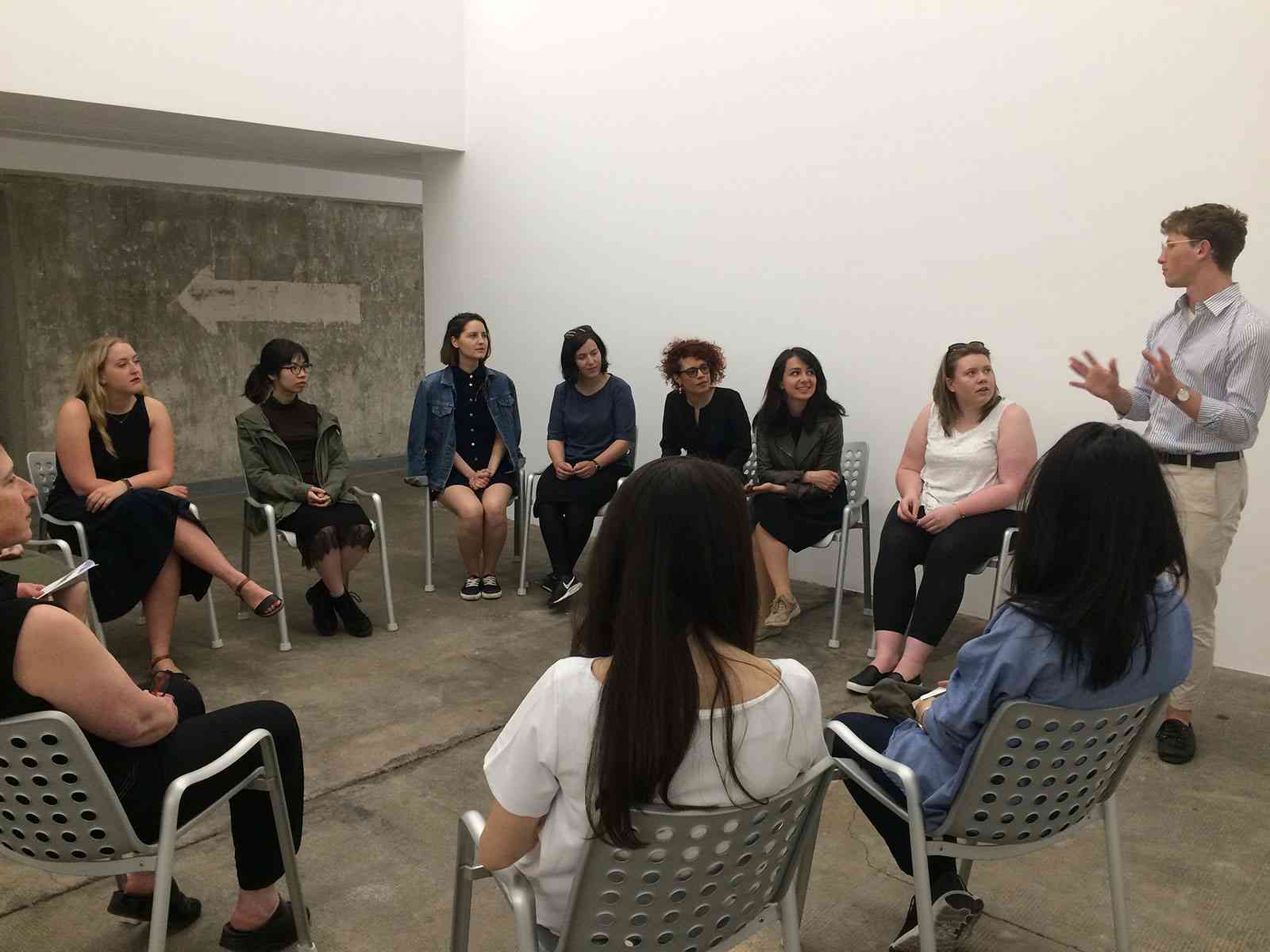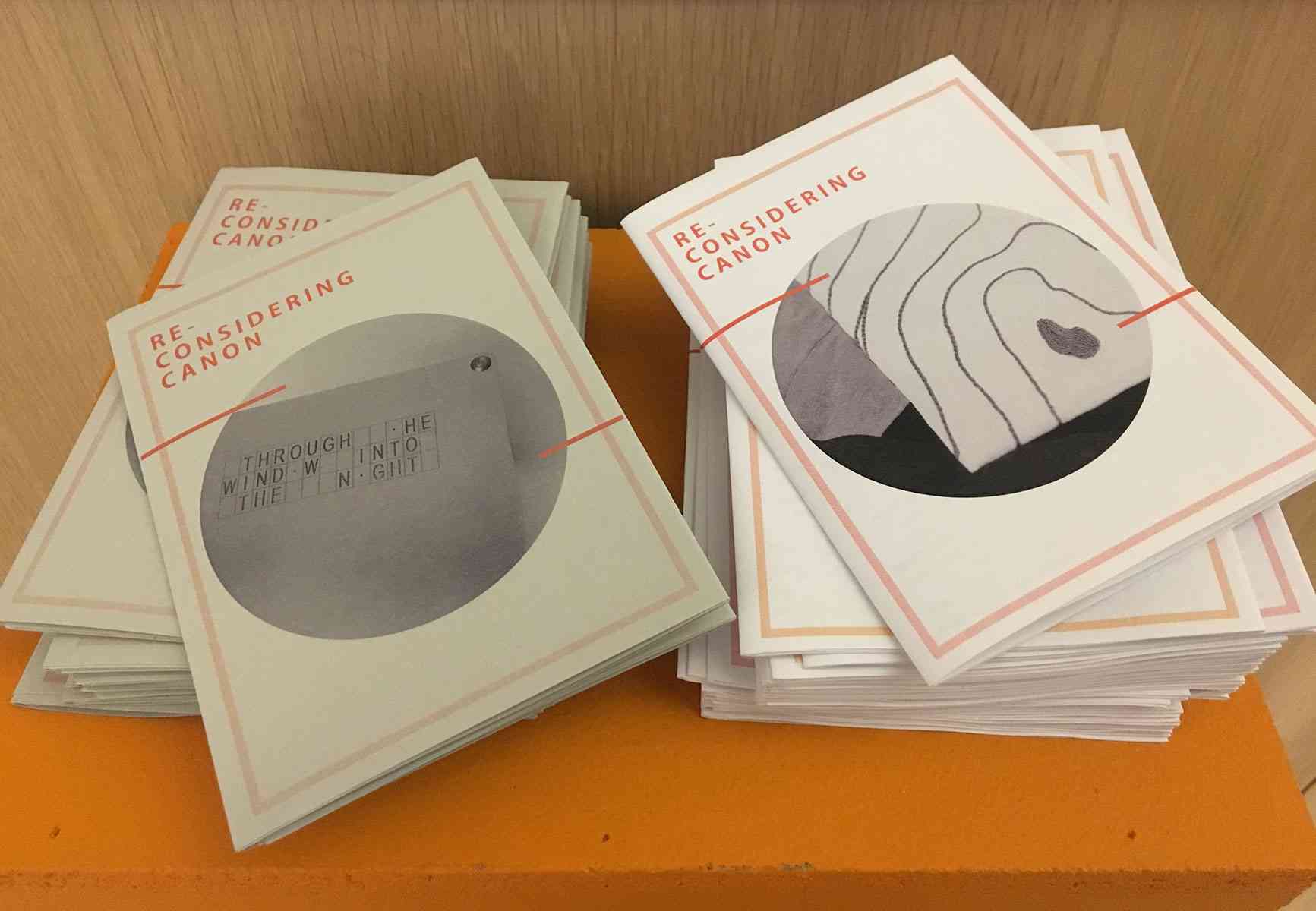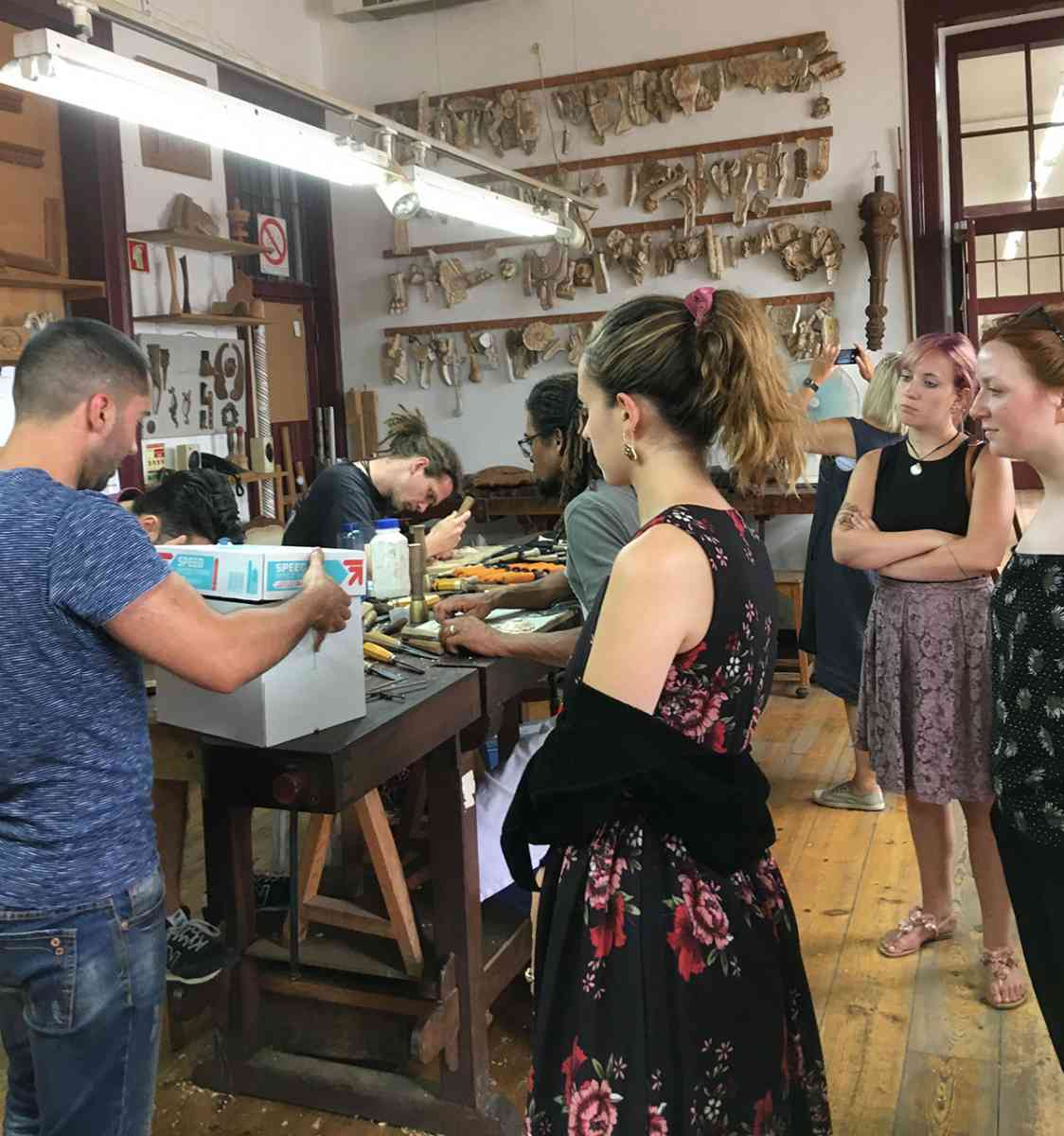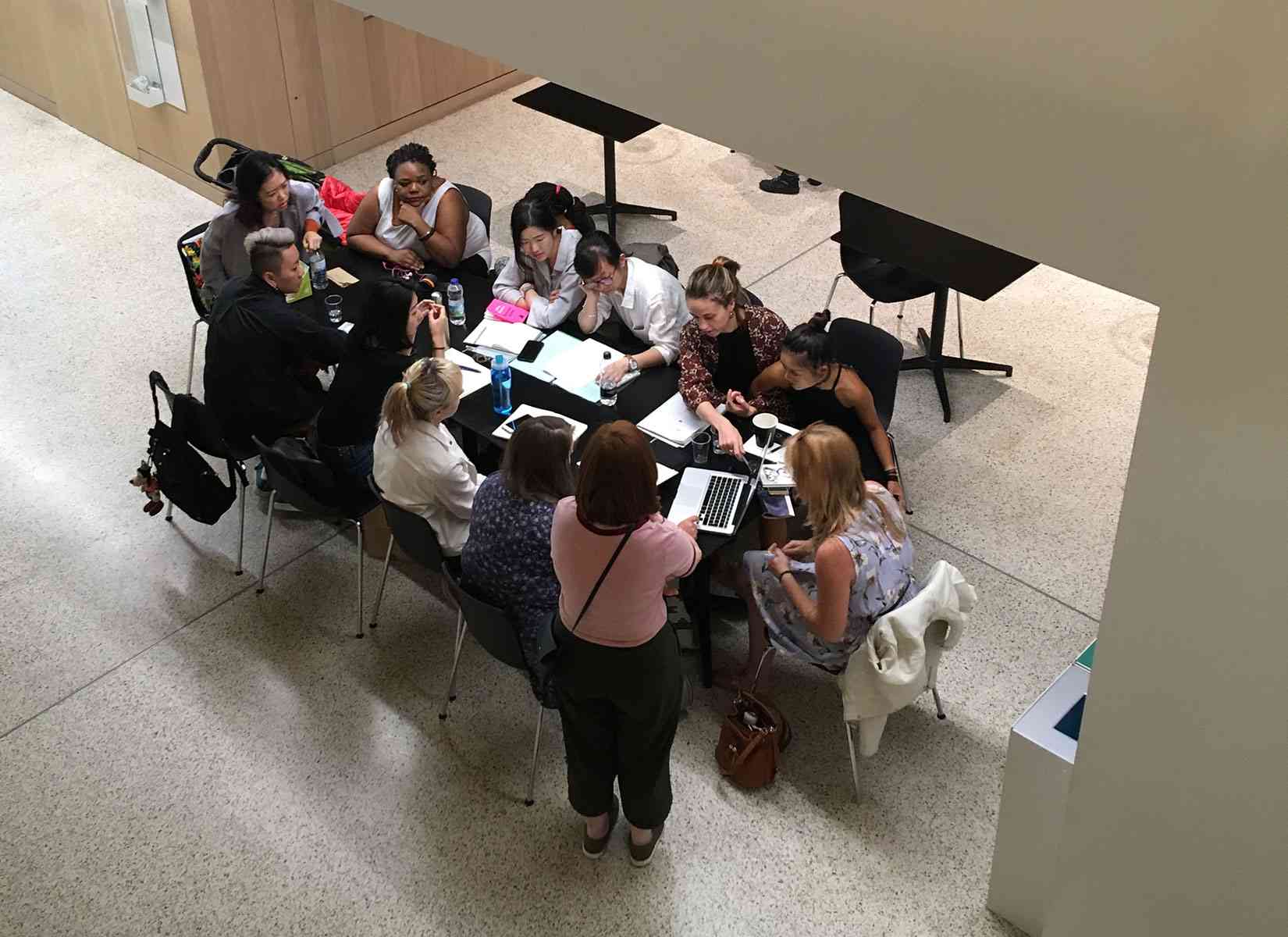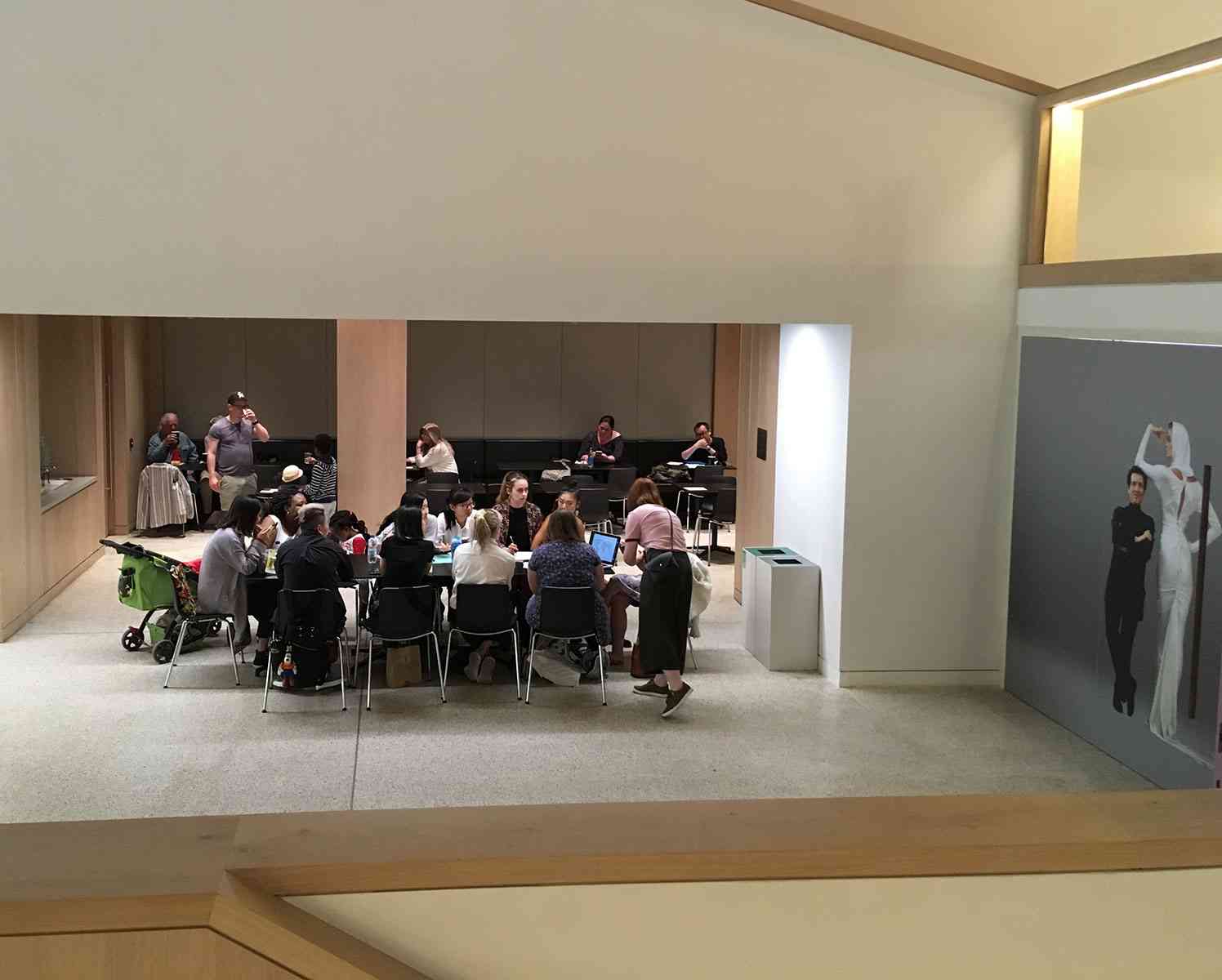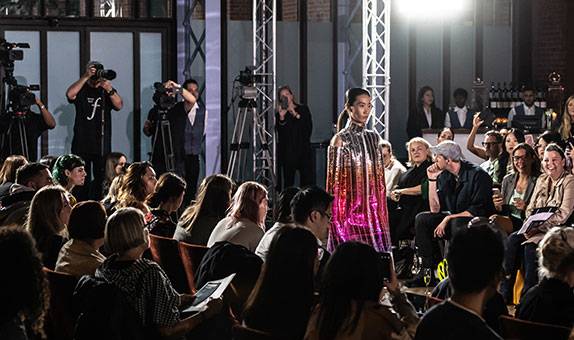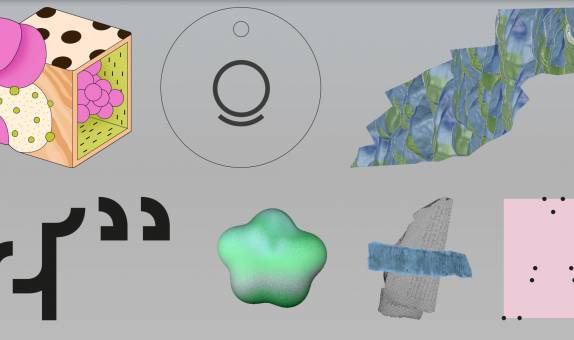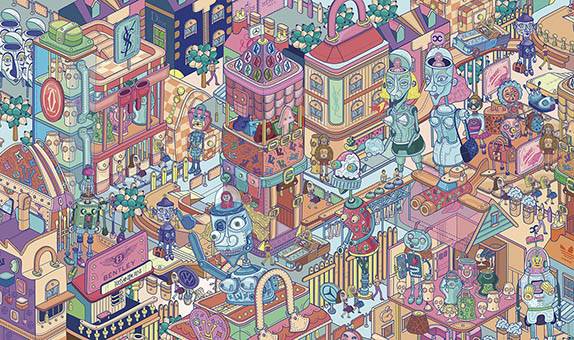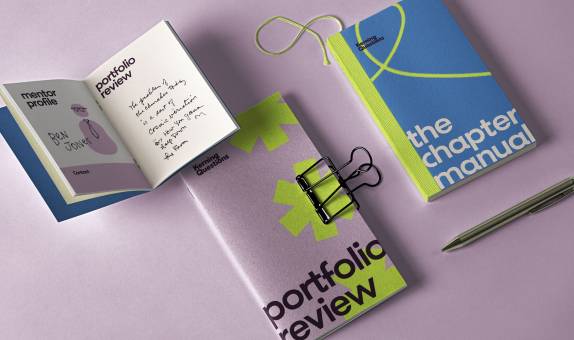Curating Contemporary Design MA (in partnership with The Design Museum)
Why choose this course?
This collaborative degree, between Kingston School of Art and The Design Museum, has grown into one of the world's foremost programmes for design curators.
Taught by leading curators and designers, the course engages critically and creatively with our fast-changing, complex world. You will have the opportunity to curate live projects and build your own professional profile, through The Design Museum and with institutions such as the Architectural Association, British Council, Gallery Fumi and the Royal Academy of Arts. Led by both research and practice, this course has taught aspiring curators for more than 15 years.
You will develop creative and practical skills for curating design exhibitions, public programmes and alternative curatorial formats. You will learn to critically reflect on curatorial practice, work trans-disciplinary and speak and write about contemporary design and curatorial practice.
The course offers visits to studios, exhibitions, galleries and independent creatives. There is also an optional international study trip.* Past destinations have included New York, Berlin and Amsterdam. Through a dissertation and/or project, you will showcase your originality and creativity in design curation.
The Kingston School of Art environment, which includes the Stanley Picker Gallery, Dorich House Museum and outstanding workshop facilities, encourages creativity and experimentation as responses to interrogations of contemporary conditions. To actively consider geopolitical, social and economic concerns, Curating Contemporary Design is taught within a transdisciplinary framework that allows students to develop responses to the complexity of the world today.
*Students will be required to cover additional costs, such as travel.
| Mode | Duration | Attendance | Start date |
|---|---|---|---|
| Full time | 1 year | 2 days a week (Tuesday and Thursday) |
September 2024 September 2025 |
| Full time | 2 years including professional placement | 2 days a week (Tuesday and Thursday) plus placement year |
September 2024 September 2025 |
| Part time | 2 years | 1 day a week (Tuesday/Thursday) |
September 2024 September 2025 |
| Main Location | Kingston School of Art, Knights Park, and The Design Museum, London |
Reasons to choose Kingston University
- The course is run jointly with The Design Museum; you will have access to inspiring curators, collections, archives, the library, exhibitions and events.
- A strong focus of the course is on project work with briefs set by leading curators, designers and critics, which address real world issues and ask for critical responses. The projects are designed to develop skills in research, analysis, experimentation, communication and presentation to peers, tutors, industry and collaborative partners, but most importantly the wider public.
- You will build your professional profile through curating live projects at the Design Museum and with institutions such as the British Council, the Royal Academy and the Architecture Association.
- The partnership with The Design Museum offers access to inspiring curators and experienced museum staff, and also to The Design Museum's collections, library, archives and a changing programme of exhibitions and events.
- Kingston University has its own art and design gallery, Stanley Picker Gallery, Dorich House Museum and extensive workshops.
- Optional study visits throughout the year bring you in contact with design and curatorial studio practice, museums, galleries and alternative curatorial spaces and formats in London. Students can also participate in an optional international study trip where previously students have visited New York, Berlin, Lisbon and Amsterdam.
The Art School Experience
As part of Kingston School of Art, students on this course benefit from joining a creative community where collaborative working and critical practice are encouraged.
Our workshops and studios are open to all disciplines, enabling students and staff to work together, share ideas and explore multi-disciplinary making.

Prepare for the curatorial world
Find out what you'll study on the course and how it'll prepare you for the curatorial world:
What you will study
Through a rigorous framework and practical experience students will engage with contemporary discourse that responds to the complexities and urgencies of today's world. Acknowledging design and curatorial history, you will engage with those contemporary concerns through transdisciplinary collaborations in theory and practice, and will develop stimulating creative interventions and critical writing.
Throughout the year, students will work on a major live project with external partners, which will allow you to gain first hand curatorial experience. The final presentation will be shared with the general public at The Design Museum. Students are currently working on a collaboration with Parsons The New School, New York and HEAD Geneva, which started with a symposium on Design and Film at Dorich House Museum.
The course is structured into five modules. Typically students must complete 180 credits and will gain 30 credits with each of the four core modules plus 60 credits in the Major Project.
Modules
Optional placement year
You will be equipped with the creative, theoretical and practical skills necessary to curate design exhibitions and other curatorial formats including devising briefs, conducting primary and secondary research, selecting exhibits and curating public programmes.
A carefully composed curating visits programme runs alongside the taught modules and includes visits to exhibitions, studios and alternative sites of curatorial and design practice and critique.
The dissertation and/or creative project provides an opportunity to realise independently a body of work which demonstrates an original and creative approach in the field of design curation. With the ambition to develop professional practice and theory, the dissertation has the potential to be developed for research at higher degree level.
Core modules
Curatorial Skill Sets
30 credits
This module provides an introduction to the concepts and practices of curating contemporary design. Through a close partnership with the Design Museum, you will directly engage with the curatorial process and develop an understanding of the curatorial knowledge and core skills necessary to produce creative exhibitions, collection displays, learning and public programmes. Leading practitioners at the Design Museum and guest lecturers introduce the key elements of exhibition curating, including concept development and narrative structure, selecting exhibits, working with exhibition and graphic designers, understanding audiences, the role of interpretation, writing exhibition text and how the areas of communications, development, finance, learning, retail and publishing support exhibitions.
These elements are further developed in group curating projects, with live project briefs set by Design Museum curators exploring a key aspect of 21st century creative and professional practice. The projects encourage communication, collaboration, peer interaction and critical reflection in combination with the development of research, analytical and critical skills. The module also includes a programme of curating visits which runs alongside the main teaching programme. The programme includes visits to exhibitions and other sites of design and curatorial practice in London. It provides the opportunity to hear curators reflect on their practice in the context of their own spaces. The programme encourages critical reflection on the visits and the writing of exhibition reviews.
Theories of the Contemporary Object
30 credits
This module provides an exploration of key theoretical concepts of curatorial practice. Questions around the object, collection, museum and exhibition will be discussed, supported by historical and current critical writing. You will develop an understanding of the close relationship between theory, history and practice, and engage with methodology as foundation of any critical writing, exhibition making or public debate.
The module radically expands the conventional definitions of the contemporary field of design practice. Using the close connection to design, art, and architecture practice courses at the Kingston School of Art, you will be exposed to a productive and stimulating environment of practice as well as critical thinking and research. Collaborative teaching between museum and university professionals allows you to interrogate with new work and develop a joined up approach to place it through research, writing and debate into historical discourse.
This module also considers the major project and explores its scope, direction and intended aims, through applied research skills and testing of methodological approaches. The project may be a set brief by a project partner, or provide a location and scope for a proposed curatorial intervention, or invite proposals in response to public concerns which might be social, political, ecological or other.
Curatorial Formats
30 credits
This module identifies and works with emerging curatorial formats and practices in order to develop your understanding of different curatorial formats. The field of contemporary design is a rapidly shifting landscape. Technologies are constantly changing and advances in social media networks, interpretation tools and public programming are having a profound impact on the way that exhibitions are conceived and presented. An expanded field of practice and new digital tools call for a range of creative solutions and specialist skills from curators. Curators need to equip themselves with the skills that address traditional forms of curating and writing alongside online platforms, broadcasting and more experimental media and display formats curated for diverse audiences, such as public programmes and residencies. A series of lectures, seminars and workshops from leading practitioners in the field will present case studies of innovative practice.
These elements are further developed in group curating projects, with live project briefs set by Design Museum curators and leading practitioners in the field which introduce and test new curatorial formats. The projects encourage communication, collaboration, peer interaction and critical reflection in combination with the development of research, analytical and critical skills. Student learning is supported by a programme of curating visits, including exhibitions and other sites of design and curatorial practice in London. It provides the opportunity to hear curators reflect on their practice in the context of their own spaces. The programme encourages critical reflection on the visits and the writing of exhibition reviews.
Politics of Display
30 credits
Display is an inherently political practice. Design and art are constantly evolving disciplines which shifting framework and overlapping boundaries necessitate persistent negotiation and (re)definition. To emphasise that this is not a new phenomenon, this module introduces exhibition examples of the last 100 years to show how such modifications have been communicated and challenged through creative and innovative curatorial approaches. Most importantly, this exhibition history demonstrates that defining the field has always been closely connected to political, social and economic aspects such as the consideration of national identities, movements, technology, culture and consumption. Investigating in historic and current adaptations of curatorial practice will directly influence how you formulate your own concept for your major project. Experimentation with formats and creative approaches are encouraged making full use of Kingston School of Art's workshops and curatorial sides. Guest lectures and tutorials will stimulate, motivate and support your independent or group work, and ensure the application of theoretical and methodological thinking.
Major Project
60 credits
The Major Project is the capstone module of the Masters programme. Focusing on critical research, analysis, and presentation, the capstone project enables students to synthesise and apply the knowledge and skills they have acquired throughout the course. The module provides students with an extensive programme of training and resources which are designed to aid them in the development, planning, research, and writing of their projects. It brings together students from several MA programmes in the School of Critical Studies and Creative Industries and embeds a range of interdisciplinary and practice-led approaches to their respective fields of study. It provides students with the opportunity to craft their own approach to their field through critical-theoretical and/or creative, practice-based research. The Major Project can accommodate research projects developed through a range of academic and professional contexts depending on the motivation and interests of the student. It can be presented either as a written dissertation or as a creative project, such as a portfolio comprising a chosen medium or media, accompanied by a critical commentary. The intensity of the workload increases across the three teaching blocks, allowing increasing focus in line with the level of your expertise.
Many postgraduate courses at Kingston University allow students to do a 12-month work placement as part of their course. The responsibility for finding the work placement is with the student; we cannot guarantee the work placement, just the opportunity to undertake it. As the work placement is an assessed part of the course, it is covered by a student's Student Route visa.
Find out more about the postgraduate work placement scheme.
Optional modules
Professional Placement
120 credits
The Professional Placement module is a core module for those students following a masters programme that incorporates professional placement learning, following completion of 120 credits. It provides you with the opportunity to apply your knowledge and skills to an appropriate working environment, and to develop and enhance key employability skills and subject-specific professional skills in your chosen subject. You may wish to use the placement experience as a platform for your subsequent major project module, and would be expected to use it to help inform your decisions about future careers.
Entry requirements
Course life
Teaching and assessment
You'll be assessed through curatorial project briefs, critical reviews, seminar presentations, essays, and a dissertation.
Who teaches this course?
This Curating Contemporary Design course is delivered by Kingston School of Art's academics, visiting lecturers, guest speakers and through industry connections, allowing you:
- the chance to engage with the most recent discourse in the field;
- a possibility to share your work with eminent members of your profession;
- 'live' projects, site visits and placements in prestigious institutions;
- project work and workshops with visiting lecturers and industry specialists.
As a student on this course, you'll be taught at both Knights Park campus and The Design Museum on Kensington High Street in Central London.
Fees for this course
Additional costs
Depending on the programme of study, there may be extra costs that are not covered by tuition fees which students will need to consider when planning their studies. Tuition fees cover the cost of your teaching, assessment and operating University facilities such as the library, access to shared IT equipment and other support services. Accommodation and living costs are not included in our fees.
Where a course has additional expenses, we make every effort to highlight them. These may include optional field trips, materials (e.g. art, design, engineering), security checks such as DBS, uniforms, specialist clothing or professional memberships.
After you graduate
Our graduates work in museums, galleries, creative agencies and cultural organisations around the world, including the Design Museum, London; M+, Hong Kong; Korean Institute of Design Promotion, Seoul; ARoS Aarhus Art Museum; Museum of Applied Arts and Sciences, Sydney; RMIT University, Melbourne; National Gallery of Zimbabwe; Shanghai Art Museum; and Victoria and Albert Museum, London.
Through our alumni, the course has developed an extensive international network of curators that include:
- Raphael Chikukwa: Executive Director at the National Gallery of Zimbabwe.
- Catherine Ince: Director of Exhibitions and Programmes at ARoS Aarhus Art Museum.
- Sumitra Upham: Head of Public Programmes at the Crafts Council in London. Previous Curator of Programmes, 5th Istanbul Design Biennial and Co-curator of the British Pavilion, La Biennale di Venezia 2023.
- Eunjoo Maing: Director/ Head of D-TEC Academy and International Affairs at the Korea Institute of Design Promotion and Regional Advisor, World Design Organisation, Seoul.
- Fleur Watson: Associate Professor, School of Architecture & Design at RMIT University and founding director of collaborative curatorial practice at 'Something Together'.
- Nina Due: Director at the Röhsska Museum in Gothenburg.
- Melita Skamnaki and Wilhelm Finger: Directors and Co-founders of Double Decker in London.
- Keinton Butler: Senior Curator of Design and Architecture at the Museum of Applied Arts and Sciences (MAAS) in Sydney.
Studio visits and guest speakers
Guest speakers and studio visits give you the chance to meet a wide range of professionals directly involved in the public presentation of contemporary design.
In recent years, guest speakers have included:
- Simon Andrews (Christies)
- Marloes van Bhomer (designer and Senior Fellow KSA)
- Daniel Charny (creative director ‘From Now On'/ Professor of Design, KSA)
- Niamh Dillon (British Library)
- Roberto Feo (El Ultimo Grito/ Professor of Practice, Goldsmiths, University of London)
- Alexandra Daisy Ginsberg (designer)
- El Ultimo Grito (designer/ Professor of Design, HEAD Geneva)
- Edwin Heathcote (architecture and design critic of Financial Times)
- Onkar Kular (designer/ Professor of Design at HDK Gothenburg)
- Olivia Oldroyd (V&A)
- Mariana Pestara (The Decorators)
- Lucia Pietroiusti (Serpentine Gallery)
- Gillian Russell (designer, curator, academic)
- Libby Sellers (independent curator)
- Jane Withers (Jane Withers Studio)
Professionals involved in course projects, crits and briefs come from a range of institutions, including the Architecture Association Archives, British Council, Royal Academy of Art, Jane Wither Studio, National Trust, Fumi Gallery, Science Museum, Victoria and Albert Museum, Crafts Council, and the Wellcome Trust.
Facilities
This course is taught at The Design Museum and Knights Park campus, Kingston University.
The Design Museum
At The Design Museum there is a dedicated teaching space in the Swarovski Foundation Centre for Learning. You'll have full access to the museum's exhibitions and learning programmes and be issued with a Design Museum membership card, which provides the following benefits:
- Free access to the museum at any time during the course.
- Use of the Sackler Library and Archive: open Monday to Friday 10am - 5pm. The Library holds a collection of curating books and design journals specifically for MA CCD students.
- Free access, or reduced admission, to talks or lectures that sit within The Design Museum Adult Learning Programme.
- A discount on books and other products in The Design Museum shop.
- Discounts in The Design Museum cafe.
Knights Park campus
At Knights Park campus, there is a wide range of facilities. The campus is situated on the Hogsmill River, with a restaurant and bar opening on to the waterside. It has a friendly, creative feel and benefits from a reception area with a gallery, art shop and space, and the light and airy open-plan learning resources centre.
The workshops and studios are open for creative exploration and offer you plenty of opportunities to collaborate on projects and share ideas, whether you are studying or researching. Building on this open approach, there are many adaptable architecture studio and workshop spaces, designed by Stirling Prize winning Haworth Tompkins, alongside active breakout spaces.
At the heart of the building are new state-of-the-art workshop facilities, which include:
- 3D workshop, with ceramics, concrete, resin-casting, plastics, metalwork, woodwork and a bronze-casting foundry, as well as a Big Build space for Architecture, set design and large scale model making
- Animation and post production studios
- Digital Media workshop
- Fashion (knitting and sewing workshops), with digital and analogue facilities, plus a working dress archive which includes pieces from 1750 to the present day
- HackSpace (for collaborative, creative, solutions-focussed projects)
- Letterpress and printmaking workshop, with digital and analogue facilities, to experiment creatively
- Moving Image workshop, with studios, editing suite, and industry-standard equipment
- Photography workshop, including studios, colour, and black and white darkrooms, processing facilities
All our facilities are open access, meaning you can use them whenever you want, and irrespective of what degree you're studying.
The University also has its own on-site galleries, including:
- Dorich House Museum - the former studio home of the sculptor Dora Gordine and her husband the Hon. Richard Hare, a scholar of Russian art and literature. Now Grade II listed, the building was completed in 1936, to Gordine's design, and is an exceptional example of a modern studio house created by and for a female artist.
- Stanley Picker Gallery - one of the leading examples of a university gallery in the UK. Its public activities are dedicated to the research, commissioning and presentation of innovative new practice across the fields of art, design and architecture for general, academic and specialist audiences.
- project spaces at Knights Park campus, which you can book for the exhibition of large-scale work.
Resources in London
Kingston is just a 30-minute train journey from central London. Here you can access world-famous museums and galleries.
What our students and graduates say
Student work
Links with business and industry
Our links with professional practice provide a real-world base for the Curating Contemporary Design course. They also help us to ensure your studies are kept up-to-date and relevant to the workplace.
Research areas
Kingston School of Art has a strong research practice, focussed on the curatorial, which is demonstrated by a considerable number of PhD students. However, many of our Research Centres engage with the subjects as well, mainly:
Course changes and regulations
The information on this page reflects the currently intended course structure and module details. To improve your student experience and the quality of your degree, we may review and change the material information of this course. Course changes explained.
Programme Specifications for the course are published ahead of each academic year.
Regulations governing this course can be found on our website.



